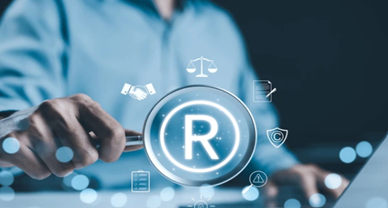Strategizing IP for Autonomous Vehicle Technology
Autonomous vehicle (AV) technology has been growing around the world. These self-driving vehicle technologies where they were able to drive without any human input have been under various plans by automotive suppliers and OEMs to bring AV into the market. In the pursuit of bringing the technology, various suppliers and OEMs often collaborate to develop hardware and software. In this collaboration, issues with regards to Intellectual Property can arise which is a key to this development of technology. A strong strategy of IP and further protection of IP covering the technical solution can enhance the business in this sector leading to the development and deployment of AVs.
[Image Source: gettyimages]
IP Strategy
IP Strategy is an important aspect of business development and an effective way to further enhance the commercialization of IP. The automotive suppliers must have that strategy of IP which can help in aligning with the business goals whether it may be short-term or long term. This strategy focused on the business goals can be very beneficial for bringing the AV-related system and even components and service to the market. This IP strategy helps the IP owner to equally commercialize the asset, helps in increasing the valuation and even promotes their business and decides how to effectively commercialize the invention seeking royalty base revenue.
In AVs, the strategy portion can help the owner ascertain the technology use and protect the IP concerning the ownership of IP in case of collaboration. The collaboration must be supportive of the startup’s growth keeping in mind the market entry and exit barriers. Such a strategy will help in effective collaboration with minimal risk and achievable growth which can help in a successful AV venture.
IP and Autonomous Vehicle Technology
As specified, the strategy helps in identifying the core portion of the technology which can be used for collaboration and effective royalty-based licensing. They should also account for challenges that the AVs can face in the market and any strategic goals. The challenges with the AV system can be multiple such as operating in the collaborative shared workspace. There can be multiple repercussions in effectively settling such collaboration. Moreover, after such collaboration, there also can be multiple challenges concerning the disclosure and tackling with the effective customer and entities of its AV-related innovations.
Public disclosure can have multiple scenarios when one talks about the IP in particular. The disclosure concerning the demonstration of hardware or software components or the disclosure of plans AV deployment plans can have serious implications if not effectively strategized. Because when it comes to collaboration, the discussion concerning the royalty distribution and strong investment issues must be done beforehand. There are probable chances that the companies overlook various such software-related innovation and IP such as the algorithm or the Artificial Intelligence.
Upon such strategizing portion, the parties must initiate various tools for taking further action. The parties must file patent applications so that there must not be any issues concerning the unintended prior disclosure or any future disclosure. It is imperative to have done with a confidentiality clause and non-disclosure agreements that can cover disclosure made in the collaboration. Also, it is necessary that for further protection of IPR, the entities can initiate the trademark and copyright registration. This will help to build the brand and make the mark commercially viable.
There need to have effective governance of ownership of IP which will help in the monetization of the IP. One can create the IP but having no plan to further retain IP ownership will not be sufficient for this collaboration. If there is an absence of any formal agreement regarding ownership there is a chance that the IP rights be waived or can be owned by another entity. The company must retain the ownership of IP before collaboration. In this situation, where the entities have not collaborated earlier, they must have a clear knowledge of the work culture and a strong foundation with the technology startup. Any failure to retain the ownership will directly affect the capital formation and commercialization of the IP.
The professional team at IPLF has strongly worked with clients in the automotive sectors and has helped clients in formulating their IP strategy in the domain. The team has been successful at various fronts giving an effective collaboration for AVs.
Author: Saransh Chaturvedi (an advocate) currently pursuing LLM from Rajiv Gandhi School of Intellectual Property Law (IIT Kharagpur). In case of any queries please contact/write back to us at support@ipandlegalfilings.com.




